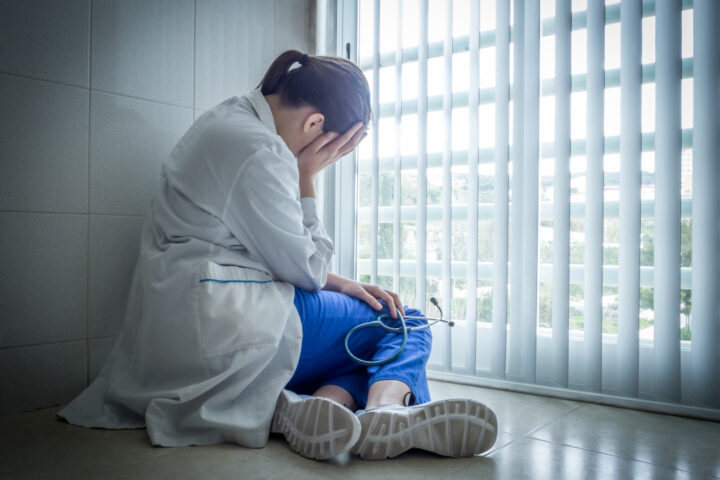Filipinos in general, have some peculiar, health and physician consulting habits It’s an observation many of us (physicians) noticed even before my generation of medical professionals. Surprisingly, we somehow developed an adaptive, physician-patient working environment that is “attuned” to such behavioral peculiarities. Even if sometimes, they are as annoying as fascinating as they can be!
Some words of caution though and a bit of a “disclaimer”. I’m pretty sure these are not unique to my set of patients nor to my field of specialty. Also, I am not saying these habits are trademarks or are unique to every Filipino patient out there. There are plentiful of exceptions and there are probably a hundred more similarities with another nationality. Certainly, I don’t want to stigmatize Filipinos but I’m sharing across a set of unique habits that sometimes hinder delivery of health care.I am not passing any judgment on these also, since I believe, talking and working these out with your personal physician is best in curbing some of these peculiar habits. Let’s do away with those and read on my observations. Feel free to agree or disagree by commenting afterward.
- A lot of patients seek consult about their health problems late in the stages of their disease. Pag malala na saka pa lang ipakonsulta.
- Many seek physician consult as a last resort. They go through the rigodon of first seeking the opinions of these people : neighbors, friends, albularyos and then finally a physician. I still get patients who have their x-rays taken because a bone setter told them to do so. Rarely, I get referrals from them, with x-rays already!
- Some patients really like to switch the urgency of their diseases on their own- an emergent problem needing immediate physician attention to a non emergent problem and vice versa. Pag emergency ang kaso, palipasin muna ang ilang araw bago dalhin sa hospital. Pag di emergency naman sa Emergency Room agad ang punta at nag aapurang makita ng duktor.
- Most patients love watches but hated time. They’re in the habit of seeking consult outside the physician’s clinic schedule. A plethora of excuses may come your way, ranging from the death of some relative, to the death of someone elses’ dogs.
- A lot of patients do listen, but rarely ask questions or clarify their health problems. They leave your clinic nodding and then call their docs when they get home. The usual question? Anu nga ba yung gamot na iinumin ko doc?
- Some patients do not want to wait in line for consultation. So they employ all sorts of maneuvers to go inside the clinic first only to remember they haven’t got their lab exam results yet!
- “Kaw na bahala doc, kung anu yung pinaka maganda na gagawin sa akin “-Is the most common response I get whenever I ask patients what’s their decision on the options of treatment I just lengthily explained to them.
- Most patients do not know what medications they’re taking or for how long they’re taking it already. Others skip medications and drink only on as per liking basis. Despite, take note, despite their docs telling them about it and giving them prescriptions.
- It’s not unusual to see a patient taking an antibiotic for a month thinking it was some sort of vitamins. And they think antibiotics are as harmless as candies.
- Some patients ask for medical advice that they rarely follow or worst, do the exact opposite. There’s always the physician to blame for unclear instructions.
- Frugality aside, most pinoys give less priority to their health than things like a new dress, eating in a restaurant, malling, alcohol, loaded diet and all other things except the word health.
- Vitamins is the most sought after “drug”. Second is an albularyo. They are not drugs and many don’t need any of them anyway.
- The macho guy patient is the cry baby. Ask the nurses who give skin testing for drug medications in the ER.
- So far, the best and effective form of advice I gave is, surgery. If you tell a patient you would operate on him if he won’t follow the medical treatment you give, 90% of a time, he’ll do the medical advice. Works wonders for me.
- Many still think that unhealthy diet, obesity and lack of exercise can only kill patients other than themselves. So party living in the meantime is necessary, until it gets worse.
- Those who swear in front of their physicians, are most likely the first to break them.
- Most have this habit of comparing their disease to other diseases of another person, even if the two entities are kilometers in difference. Then they worry about someone else sickness and not theirs.
- Some patients do pop out like mushrooms on rainy days, and disappear suddenly like thin air on good days. Nobody follows up when they feel good up front despite the careful advice of a close follow up.
- Many prefer to have their children seen at the slightest fever, rather than themselves when they are spitting out blood.
- The last but certainly not the least annoying is, patients believe and only follow the medical advice that they like. This selective understanding is often used to support an unfounded belief and realigned to suit a particular socio-cultural belief and tradition.
- (Updated) The bantay (guardian) system. On the positive side, we rely on bantays to assist us in providing personal care of the patient. But sometimes, some Pinoy bantays are really just mirons (kibitzers) and just meddle on issues for the sake of gossiping. Whew!
So, these are all I can think of for now. I’m sure there’s a lot more to tell but well, I’ll leave the others to my colleagues! So which among these traits or habits do you have as a patient? Leave a comment to reply!
(Update: After I wrote this article, I stumbled upon Doc Emer’s posts some 2 years ago about the same topic. We have strikingly similar observations in not a few instances! Here , have a good read on his post)
Photo credits: Photo taken from here






I'm a nurse but I have some of the peculiar habits mentioned here. Like number 11 — I can easily spend on gadgets and food but pays with a heavy heart when buying my meds. I also *used* to think that having a health regimen like sports is a waste of time. I also belong to number 19 — I usually delay seeing a doctor if the patient is myself but insist that my parents see their doctors on the slightest problem and or the most basic of symptoms.I'm also guilty of number 20 — Being a nurse, I know and understand why my doctor ordered my labs and my meds. I comply with the labs for the initial consultation but conveniently forget the follow-up labs and check-up. As far as meds are concerned, I'm proud to report that I am 100% compliant.Before, I used to think that these behaviors are because of lack of education. Yes, lack of information is partially the cause. But I think, more than patient education, what patients need is a change in attitude and perspective. We simply put value on the wrong things.
Hi Doc Remo,I was nodding the whole time while reading your post…ang Pinoy nga talaga. I've encountered all these kinds of patients, and since I work in the ER, it's not uncommon for me to have to deal with them when everyone else is asleep. Hay naku.
@Lyle, I agree its in the attitude. A change in perspective and outlook as well as priority is really needed..
@Anakat, no wonder. dealing with Filipino patients requires a a stretchable length of patience!
when a patient gives me no. 7, i get really really nervous. it is a very ominous statement. hahahah! more often than not, it means that the patient is tired to understand the illness and the treatment plan.
@Gigi, exactly. I just had that kind of patient too, wherein my lengthy options and treatment plan explanation was lost to oblivion. The OR went out as planned. Right after the OR she asked me why was the other option was done instead of the one she agreed to.
its funny but these things are happening.i can relate to number 1,7 and 15.